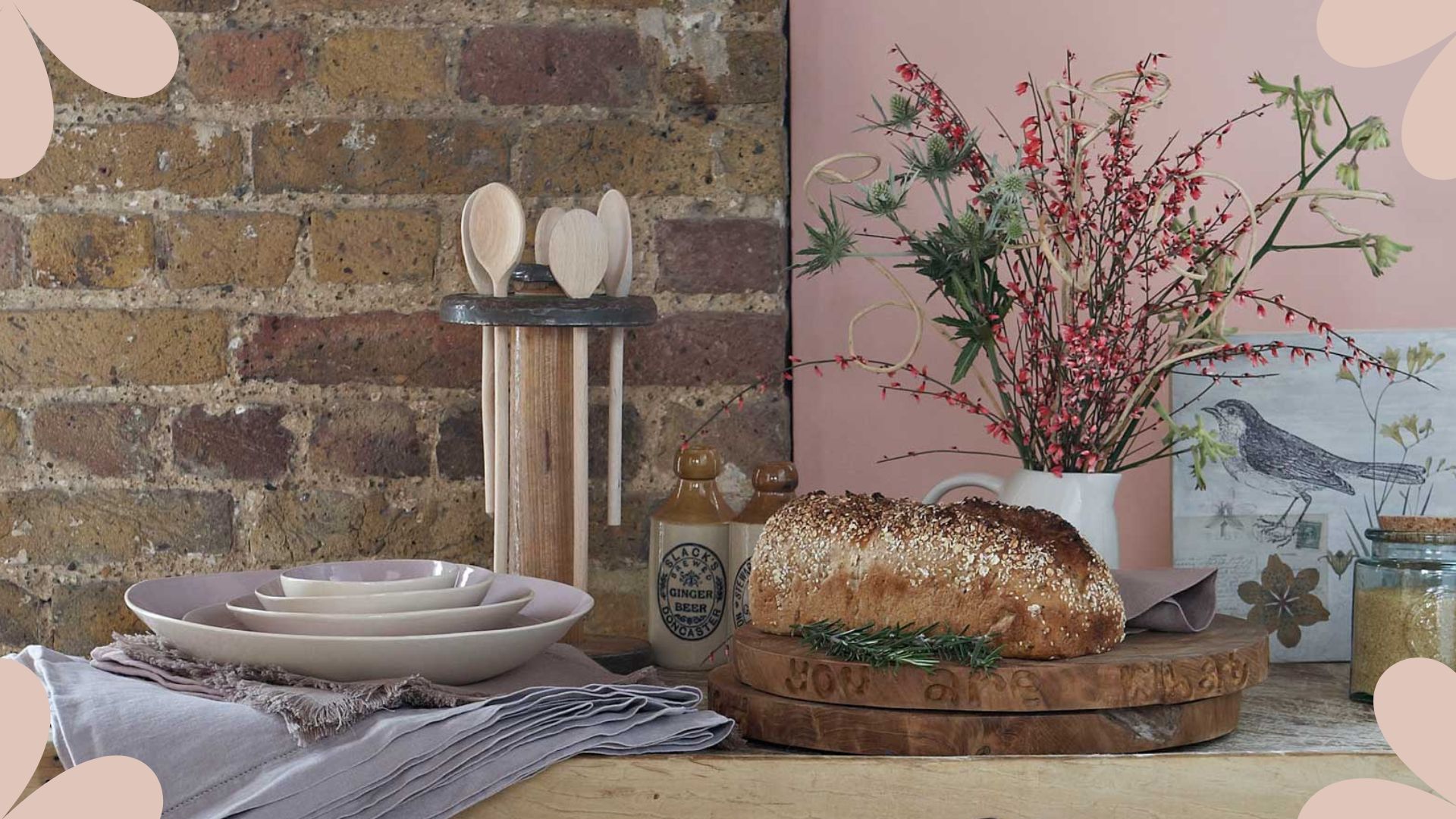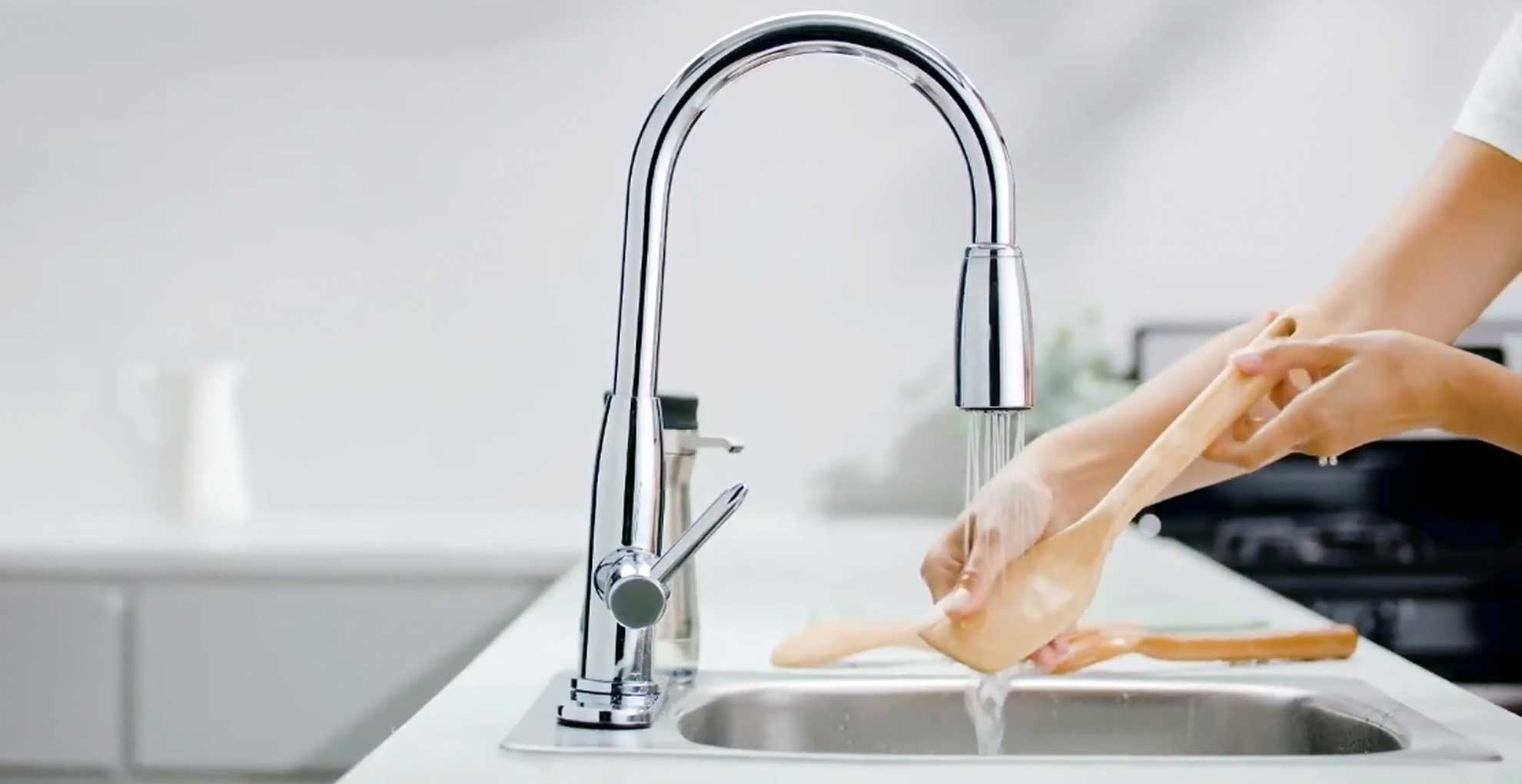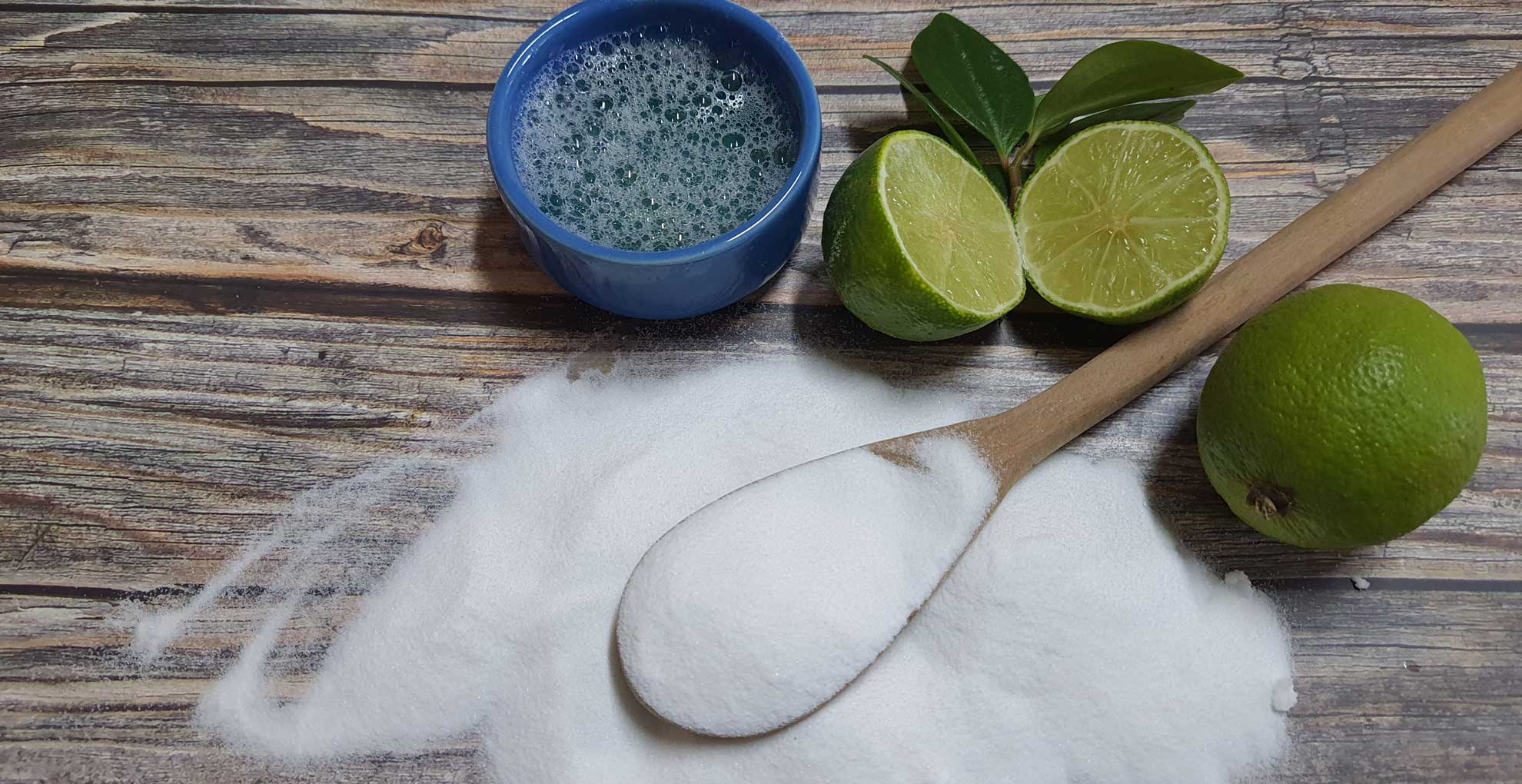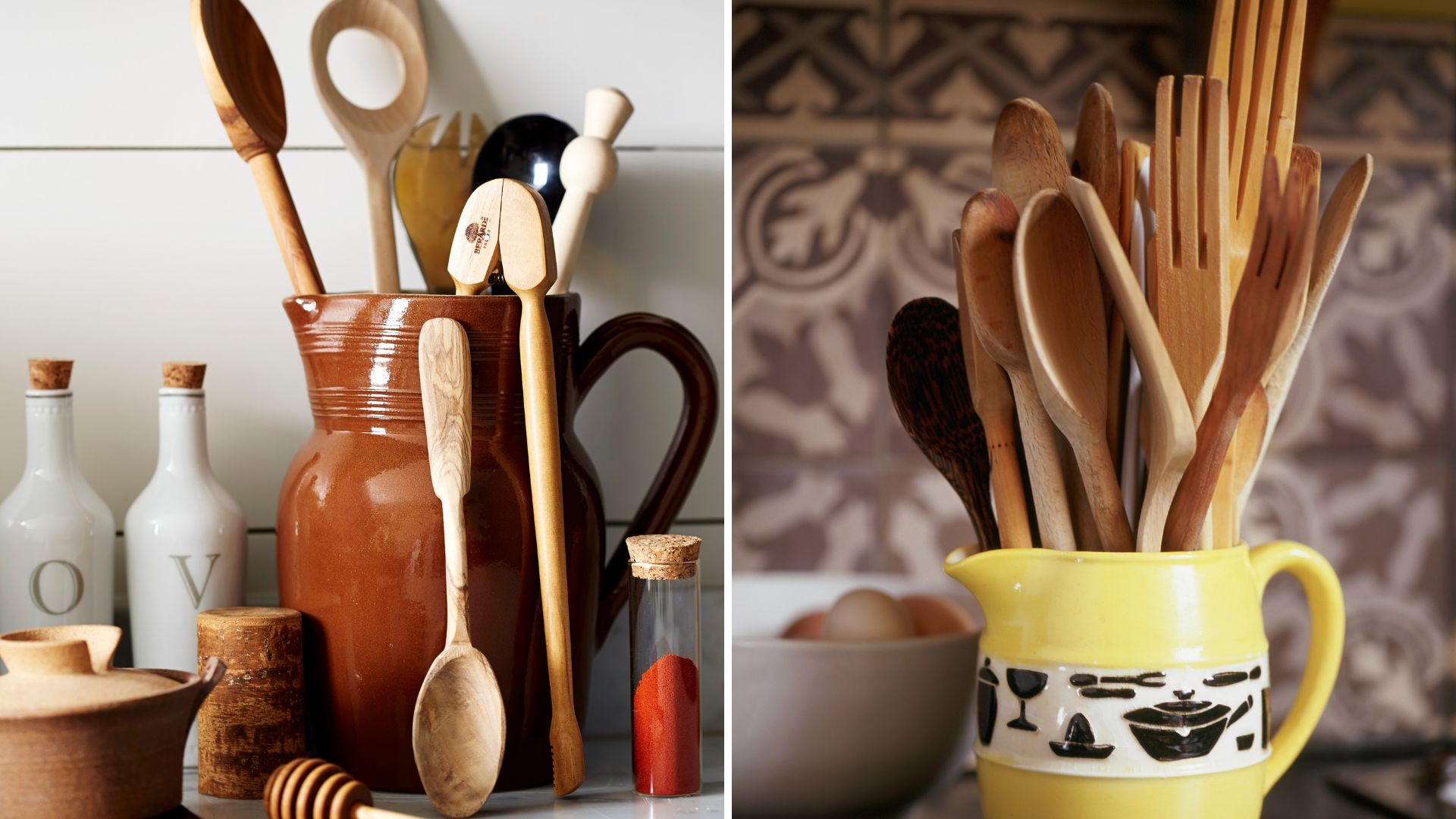How to clean wooden spoons properly to avoid causing damage
Cleaning wooden spoons can be a simple task, even without the dishwasher but the key is knowing how to do it properly to preserve the wood


Knowing how to clean wooden spoons properly ensures this popular kitchen tool remains clean, hygienic, and in tip-top condition to cater to all your cooking needs.
It's all too easy these days to scoop everything into the dishwasher to maintain a clean kitchen after you've spent the best part of the evening preparing something delicious to eat but unfortunately, there are certain tools that can't handle an intense dishwashing cycle – wooden spoons being a prime example.
Wooden spoons are a welcome functional tool that also adds a touch of rustic charm to any kitchen, but they can quickly lose appeal when they become damaged or discolored. To prevent this from happening the correct cleaning approach is essential, to extend their lifespan and keep the traditional tools looking like new.
By following our expert cleaning tips, you can ensure that your wooden spoons remain valuable tools to aid all your mixing, stirring, and baking needs for years to come.
How to clean wooden spoons: in 4 easy steps
"A common misconception when it comes to cleaning wooden kitchenware items is that they are less hygienic than plastic and therefore you may need to use a higher temperature to clean them," says Joe Authbert, buying manager at kitchenware specialists ProCook. "But this is untrue and, in fact, can even lead to damaging the wood.
"In contrast, wood is actually far more hygienic as a material thanks to its natural antibacterial properties. With proper care, wooden kitchen utensils are an environmentally friendly choice that will last for many years."
Cleaning wooden spoons is a chore that should be handled with care to preserve their condition and as part of this, it's recommended to use only natural ingredients to clean with.
Sign up to our free daily email for the latest royal and entertainment news, interesting opinion, expert advice on styling and beauty trends, and no-nonsense guides to the health and wellness questions you want answered.
Here's what you will need to clean your wooden spoons effectively:
- Gentle dish soap detergent
- Hot water
- Clean microfibre cloth
- Baking soda, vinegar, and a lemon
- Clean kitchen dishcloth
- Optional: food-grade mineral oil for seasoning
1. Rinse away excess residue

To start the cleaning process the best practice is to rinse away any excess mess. Whether you've been stirring a pudding mix or preparing a homemade tomato Passata sauce, it's best to remove any caked-on ingredients with an initial rinse as soon as you've finished using them to prevent any staining.
To do this rinse the wooden utensils under the hot water tap. The aim of the rinsing step is to remove as much of the remaining food source as possible to make the next step even easier.
"The hot water will break the high bonds in solidified grease and oils, causing them to melt and come off the spoon," explains Emma Lewis-Jones, product director at leading kitchen retailer CookServeEnjoy. "It will also help to soften any stubborn food particles that are stuck on."
2. Wipe and apply dish soap
Once you've given your spoons a thorough rinse it's time to wipe them over with a small amount of gentle detergent.
"Avoid using harsh detergents or abrasive materials that can damage the surface of the wood," stresses Jane Wilson, cleaning expert at professional cleaning services Fantastic Cleaners. "Wash the wooden spoons with warm soapy water instead."
Add a small amount of dish soap onto the surface of the spoons, ensuring it’s covered, leaving it to work its magic for a few minutes, and then take a clean microfibre cloth and wipe the soap away while rinsing under warm water. Gently wiping the spoons ensures any lingering grease and oils that remain are now removed.
3. Use natural ingredients for deep cleaning

Here at w&h, we're big fans of cleaning using natural ingredients, cleaning with vinegar is our go-to solution for many household chores. And guess what, you can use all of our favorite classic pantry staples to clean wooden spoons effectively.
"For an extra grubby spoon, add a squeeze of lemon juice and add one tablespoon of baking soda to your water before submerging your spoon," advises Emma. "Carbon dioxide is released when these ingredients are combined, causing a fizzing reaction that helps remove stubborn stains. After soaking for around 20 minutes, wash with warm, soapy water as usual. Not only will this make your spoon look brand new, but it will also keep them smelling fresh."
While Sue Caldwell, managing director of the multi-award-winning, eco-friendly cleaning brand Clean Living International recommends another variation on a natural cleaning combo, suggesting: "Baking soda and white distilled vinegar are fantastic natural cleaners - baking soda acts as a great cleaning agent as it is a mild alkali, which dissolves grime and grease, while the vinegar will neutralize odors and fight bacteria that the spoon might have absorbed."
"Simply add equal parts of vinegar with boiling water and a teaspoon or two of baking soda, pop your spoons in, and leave to soak for fifteen to twenty minutes. We recommend doing so once a month to give them a deep clean!"
4. Allow sufficient drying time
One of the problems encountered when using wooden spoons is the damage caused by prolonged exposure to moisture. It is therefore imperative to allow your wooden spoons to dry thoroughly before you place them back into an organized kitchen drawer out of sight.
Once you've rinsed your spoons use a dry, clean dish towel to pat the surface to remove excess moisture and then leave on a clean and clear countertop or above the oven, or someplace equally as warm, to rest until the spoon is bone dry to the touch.
Optional step 5: Season with oil
While this step is not an everyday essential, it is recommended by experts to preserve and maintain wooden spoons. The act of coating your wooden spoons in food-grade mineral oil helps to add a protective layer to the material – much like seasoning a cast iron skillet.
"Reseasoning after cleaning restores the protective oil that's been stripped away," says Emma. "Once your spoon has air-dried, add a generous amount of a neutral, like mineral oil, to a cloth and rub it over your spoon. This will add a protective layer, giving your spoons a new lease of life and helping them to last longer."
Always work with the grain when applying the oil to ensure complete coverage. Once oiled allow them to air dry for several hours.
This step is only needed every few months – depending on how much you use your wooden utensils.

Can you wash wooden spoons in the dishwasher?
As previously mentioned it's not recommended to wash wooden spoons in a dishwasher because they are exposed to prolonged intense heat and water - both elements that could potentially damage the integrity of the wood.
"A traditional wooden spoon is a kitchen essential, but they do tend to hold onto grease and smells due to their porous surface, especially if you've had them for a long time," says Emma. "But putting your spoons in the dishwasher is a no-go; excessive heat and moisture in a long washing cycle can warp and crack the wood."
In conclusion, hand washing is always the best solution for efficiently cleaning wooden spoons without posing the risk of causing damage to the material.
Does boiling water clean wooden spoons?
When it comes to cleaning essential kitchen tools boiling water is often a go-to to sanitize surfaces with ease, but should you use boiling water to clean wooden spoons? Will it damage the grain of the wood?
"Boiling water can help to sanitize wooden spoons by killing bacteria, but it may also cause the wood to crack or warp if it's exposed to high temperatures for an extended period," warns Andrii Gurskyi, co-founder at HomeClean, a New York City-based maid service that specializes in professional cleaning services.
"Therefore, it's best to avoid boiling wooden spoons where you can unless the spoons are heavily soiled or have been used to handle raw meat or other potentially harmful substances. Instead, you can clean your wooden spoons by wiping them down with a damp cloth and mild soap after each use."
However, Emma advocates using boiling water only when a deep clean is required: "soaking your spoons in boiling water is a solution to deep cleaning wooden spoons. Simply boil the kettle and fill a cup before popping in your spoon and leaving it to soak for up to 20 minutes (no more). Oil is less dense than water, so you should notice grease and oils floating at the top of your cup within minutes."
So in conclusion, you can use boiling water to sanitize wooden spoons but be sure not to leave them soaking in the heat for a prolonged length of time – generally no more than 20 minutes, as the experts advise.
Is it okay to soak wooden spoons in water?
It's not advisable to put wooden spoons in the dishwasher, because of the saturation process during cleaning. It's therefore not recommended to soak wooden spoons for prolonged periods of time in any solution – be it boiling water or vinegar. The expert guidance is no longer than 15 to 20 minutes to avoid causing any damage.
"Soaking wooden spoons in water can cause the wood to absorb moisture and potentially warp or crack over time," Andrii explains. "It's generally best to clean wooden spoons by wiping them with a damp cloth and mild soap. If your wooden spoons become heavily soiled, you can try soaking them briefly in warm, soapy water, but be sure to dry them thoroughly afterward."
Emma also advises airing on the side of caution when it comes to soaking wooden spoons. "Soaking too often could be detrimental to the lifespan of your wooden spoon, causing it to fray. As long as you're not doing this excessively and ensuring you recondition after cleaning, soaking your wooden spoons in water is a simple hack to rejuvenate your tired-looking utensils."
How do you make wooden spoons look new?
Any favored kitchen utensil will start to show signs of use, but wooden spoons are even more likely to age due to the nature of wood and how it reacts to temperature and moisture.
To make your much-loved wooden spoons look like new Andrii suggests: "To make wooden spoons look new, you can sand them lightly with fine-grit sandpaper to remove any surface stains or roughness. Then, apply a food-grade oil or wax to protect the wood and enhance its natural beauty. Be sure to follow the manufacturer's instructions for applying the oil or wax, and allow the spoon to dry thoroughly before using it again."
"You can also use a mixture of baking soda and water to remove stubborn stains from your wooden spoons."

Tamara is a highly experienced homes and interiors journalist with a career spanning over 22 years. Now the Lifestyle Editor of womanandhome.com, she previously spent 18 years working with the style teams at Country Homes & Interiors and Ideal Home. With these award-winning interior teams, she gained a wealth of knowledge and honed her skills and passion for styling and writing about every aspect of lifestyle and interiors.
A true homes and interiors expert, Tamara has been an ambassador for leading interior brands on multiple occasions, including appearing on Matalan’s The Show and presenting at top interior trend forecasting events such as the Autumn Fair and Spring Fair.